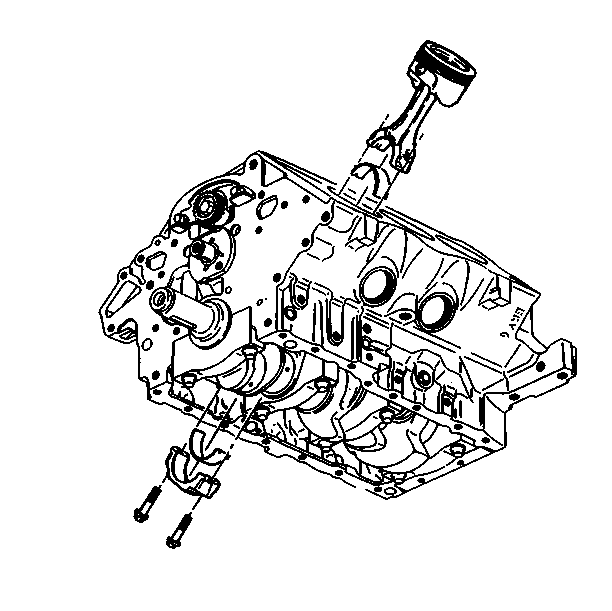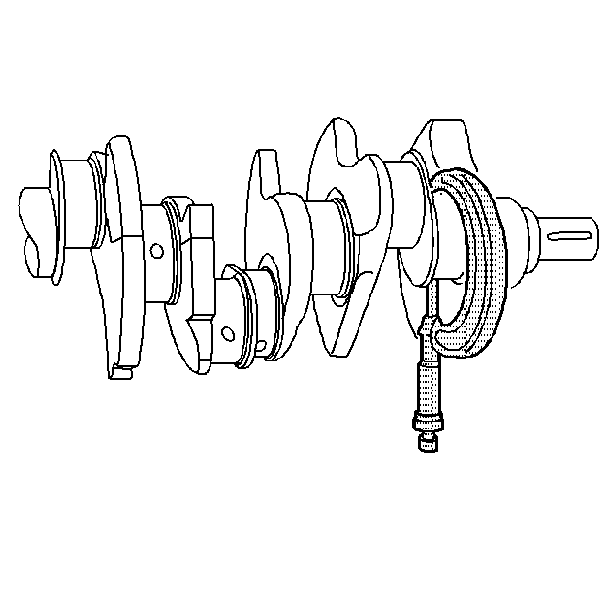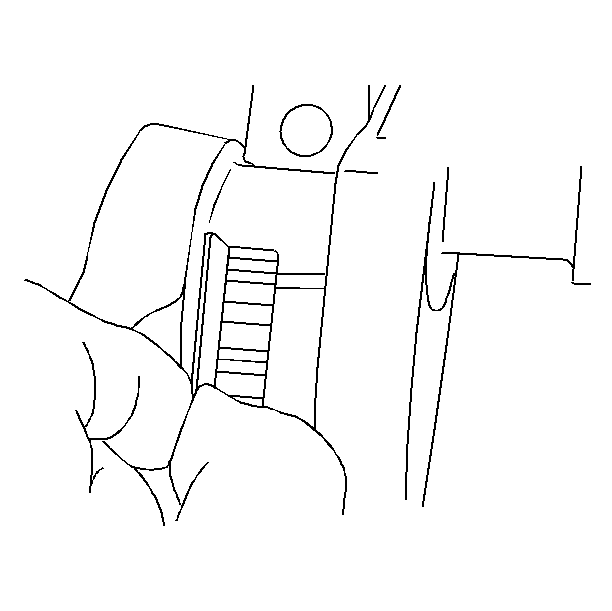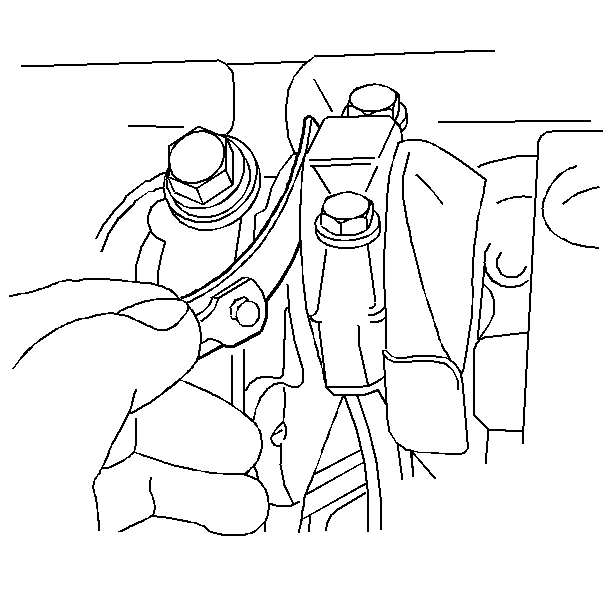Removal Procedure
Tools Required
J 36660-A Torque Angle
Meter
Connecting rod bearings are a precision insert type and do not use shims
for adjustment. Do not file connecting rods or rod caps. If clearances are
found to be excessive, a new bearing will be required. Service bearings are
available in standard size and also 0.013 and 0.026 mm undersize for
use with new and used standard size crankshafts.
- Remove the oil pan. Refer to
Oil Pan Replacement
.
- Remove the oil pump screen. Refer to
Oil Pump Suction Pipe and Screen Assembly Replacement
.
Important: Place the match marks or numbers on the connecting rods and the connecting
rod caps. Connecting rod caps must be assembled to their original connecting
rod.

- Remove the connecting rod bolts.
Important: Keep the bearings with their original connecting rod and cap for reassembly.
Wipe the oil from the bearings and crankpins.
- Remove the connecting rod cap and bearings.
- Inspect the bearings for excessive wear or damage.

- Measure the crankpin for out-of-round and taper with a micrometer. If
the crankpin is not within specifications, replace or recondition the crankshaft.
If installing the new bearings, determine the new bearing size front the maximum
crankpin diameter.
Notice: Do not turn the crankshaft assembly after the timing chain has been
removed to prevent damage to the piston assemblies or valves.

- Use the following procedure in order to measure the bearing clearances
with gauging plastic:
| 7.1. | Place a piece of gauging plastic the full width of the bearing,
parallel to the crankshaft, onto the crankpin. The gauging plastic should
be positioned in the middle of the bearing. The bearing is thickest in the
center and the bearing clearance must be measured at this location. |
| 7.2. | Install the connecting rod cap with the bearing onto the connecting
rod. |
| 7.3. | Install the connecting rod bolts. |
Tighten
Tighten the connecting rod bolts evenly to 27 N·m (20 lb ft).
Use the J 36660-A
in order
to rotate the nuts an additional 50 degrees.
| 7.4. | Remove the connecting rod nuts and cap. The gauging plastic will
adhere to either the connecting rod cap or the crankshaft journal, and is
measured without removing it. |
| 7.5. | Measure the gauging plastic at its widest, using the scale provided
with the gauging plastic. If the clearance is grater than specified, select
an undersize bearing and re-measure the clearance. If the clearance cannot
be brought to specifications, regrind the crankpin. If the crankpin is already
at the maximum undersize, replace the crankshaft. |
| 7.6. | Remove all the gauging plastic material after measuring. |
Installation Procedure

- Coat the inside surface of the bearings with engine oil.
- Install the connecting rod bearings.
- Install the connecting rod cap.
- Install the connecting rod bolts.
Tighten
Tighten the connecting rod bolts to 27 N·m (20 lb ft).
Use the J 36660-A
in order
to rotate the bolts an additional 50 degrees.

- Use the following procedure in order to measure the connecting rod side
clearance:
| 5.1. | When all of the connecting rod bearings have been installed, tap
the connecting rod lightly to the crankpin in order to ensure that the bearings
have clearance. |
| 5.2. | Measure the side clearance between the connecting rod caps. Use
a feeler gauge or a dial indicator. |
| 5.3. | The rod side clearance should be 0.033-0.079 mm (0.0013-0.0031 in). |
- Install the oil pump screen. Refer to
Oil Pump Suction Pipe and Screen Assembly Replacement
.
- Install the oil pan. Refer to
Oil Pan Replacement
.





